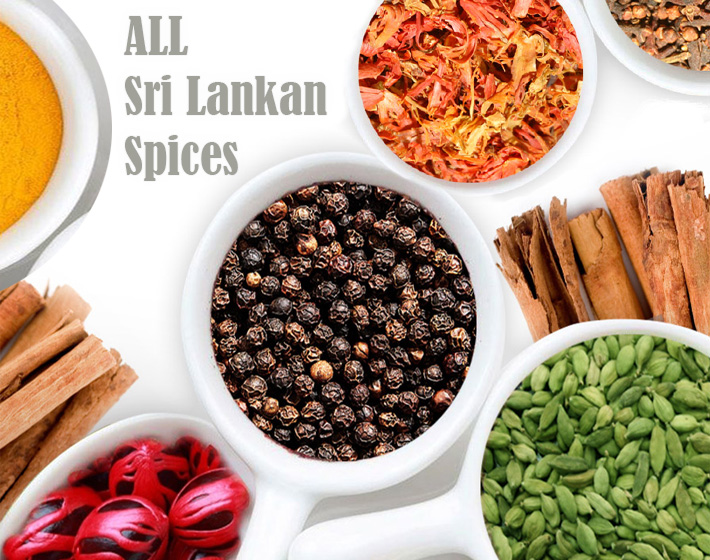- Mon - Fri: 7am - 10pm
- +94 78 363 3845
- damitha@pdrexporters.com


Sri Lanka has been famous for an exquisite range of spices for centuries. It’s these spices that are largely behind the mouth-watering flavours of Sri Lankan cuisine, be it curry of vegetable, red or white meat, fish or seafood or even some sweetmeat.
Today Sri Lankan spice and concentrate industry are composed of a large variety of products, ranging from bulk spice products like true cinnamon to value-added essential oils. The sector is dominated by smallholders, and over 70% of cultivated land is smallholdings and home gardens. Sri Lanka exports around 30,000 tons of various kinds of spices annually.
The spices from Sri Lanka mainly include Ceylon Cinnamon, Ceylon Pepper, Ceylon Cloves, Ceylon Cardamom, Ceylon Nutmeg, as well as mace, Vanilla. Sri Lanka is also home to a range of additives and herbs including a variety of chilies, coriander seeds and leaves, curry leaves, cumin, fennel, fenugreek, ginger, mustard, tamarind and turmeric among others.
Out of Sri Lanka’s exports falling under other agriculture commodities, 56% comprises spices and allied products and essential oil sector while 55% is made up of cinnamon and related product exports.
Ceylon Spices are more than just flavor agents. Most of them carry important medicinal properties and are widely used in alternative medicine and pharmacology. Some of them like true cinnamon and cloves are ingredients used in perfume and cosmetic industries mainly because of their distinctive fragrance.
In addition, spices and herbs from Sri Lanka when combined and grounded into powder or paste makes a range of seasoning and condiments that add flavor to all Sri Lankan dishes from rice to curries, pickles, salads, sambols, and desserts.
Also, Sri Lankan spices are used to distil a whole range of essential oils such as cinnamon leaf oil, clove oil, cinnamon bark oil, nutmeg oil, pepper oil, citronella oil, sesame oil and cardamom oil.
Of the numerous essential oils produced in Sri Lanka, cinnamon oil tops the list for its many benefits known to mankind for aeons. Extracted from the leaf of the cinnamon tree through steam distillation, the cinnamon leaf oil contains beneficial components like phenols, eugenol and low levels of Cinnamaldehyde, which is both a flavoring agent and a strong mosquito and insect repellent. The more expensive Cinnamon bark oil possesses strong anti-bacterial properties as well.
Sri Lanka also produces and exports Oleoresins which are mixtures of volatile and non-volatiles of botanicals extracted from such Sri Lankan spices as Black Pepper, Cardamom, Nutmeg, Ginger, Cloves, Garcinia, Lemongrass, and Cinnamon. Sri Lanka supplies both conventional and organic spices, essential oils, and oleoresins.
The weather and soil have a greater effect on the taste of spices and the level of alkaloids and flavonoids responsible for the flavor, pungency and aroma of each spice. Sri Lankan Spices are identified with the unique geographical indication of Ceylon Spices, due to their distinct flavor and aroma, which has placed Sri Lanka in the world map since the 14th Century.